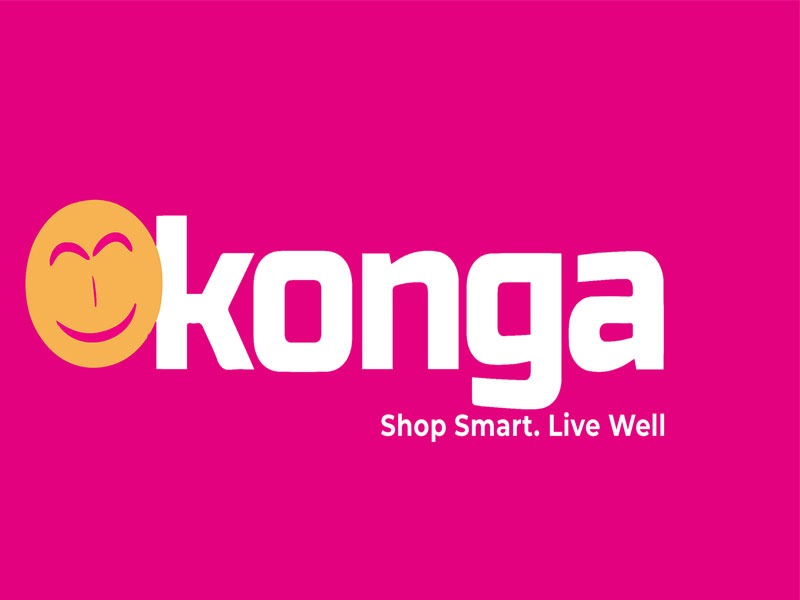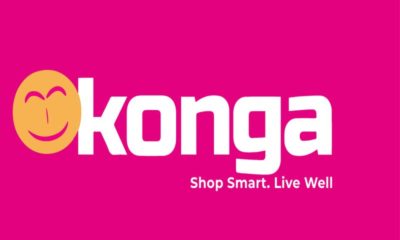Konga, Nigeria’s leading composite e-commerce giant, has signed a partnership with the Federal Government through the Diaspora Commission to further strengthen the relationship between Nigerians abroad, their relatives and the nation.
To this effect, a Memorandum of Understanding was signed between Konga and the Nigerians in Diaspora Commission (NIDCOM) on Tuesday, September 14, 2021, in Abuja, the Federal Capital Territory (FCT).
Present at the signing ceremony was the Chairman/Chief Executive Officer, NIDCOM, Mrs. Abike Dabiri-Erewa; Chairman, Zinox Group, Leo Stan Ekeh, Co-CEO, Konga Group, Nick Imudia; Vice President, KongaPay, Isa Aliyushata as well as other senior officials of NIDCOM.
The terms of the MoU will see NIDCOM partner with Konga is offering Nigerians based in overseas locations a credible platform devoid of the potential concerns of fraud and other unscrupulous practices. Consequently, through this synergy, Konga will place its huge resources, extensive reach, world-class assets and credible database at the disposal of millions of Nigerians in the Diaspora in search of a reliable and robust platform to work within the country.
In addition, the partnership will see Konga set up an exclusive Diaspora Marketplace to aid Nigerians abroad gain access to quality Nigerian products and services, while also helping them sell their own items locally. Furthermore, NIDCOM will also leverage Konga TV, a cutting-edge Cloud TV soon to be launched by the e-commerce giant, to reach millions of Nigerians across the globe.
The development is one which the FG believes will ease capital flight, while also boosting the scope of useful foreign exchange earnings through Diaspora returns.
‘‘We are delighted to have signed this partnership with Konga which remains unarguably a world recognized and credible e-commerce leader in Nigeria,’’ disclosed Hon Mrs. Abike Erewa, NIDCOM Executive Chairman. ‘‘Through this initiative, millions of Nigerians will have access to a reliable platform here in Nigeria to guide their investment decisions, while also offering them a chance to empower their loved ones through the numerous opportunities that abound on KongaGroup. We are also confident that this partnership will encourage many Nigerians resident abroad to gain useful knowledge and consider major social investments in Nigeria, a development that will further rub off positively on the economy.”
Also speaking at the event, Ekeh, Chairman of Konga commended the NIDCOM Chairman and her team for their efforts and professionalism in making the partnership a reality. Ekeh, who pioneered e-commerce in Africa through the now-defunct BuyRight Africa Dotcom over 13 years ago, lauded the power of e-commerce in bridging gaps and growing the wealth of nations in the 21stCentury, a role he stated that Konga is eminently positioned to play in view of its huge resources and growth trajectory in Nigeria and beyond. He added that the partnership is expected to cause a change that would be a blessing to Nigerians in the 21st century.
On his part, Imudia, Co-CEO, Konga Group also stressed the many opportunities that abound for Nigerians in the Diaspora through the partnership with NIDCOM.
‘‘The opportunities are huge.
‘‘Many Nigerians abroad can now find credible merchants for their purchases in Nigeria or even set up their own stores on Konga. Also, they can access reliable information before committing funds or while making investment decisions. With Konga, Nigerians abroad can afford to extend support to relatives and their respective communities without stories.
‘‘Put simply, Nigerians abroad can order foodstuffs, medicines, and other products on Konga platforms and get them delivered to their families and friends without stories, no matter the location in Nigeria. All they need do is open a wallet on KongaPay, a Central Bank of Nigeria fully licensed mobile money platform. They can also use the Konga platform to pay school fees, monthly feeding allowances and pay contractors working for them in Nigeria, etc. and receive alerts that their instructions have been carried out with 100% accuracy.’’
The partnership with NIDCOM comes just as Konga recently signed off on another partnership with the Ministry of Youths and Sports Development to empower millions of Nigerians youths through a job and wealth creation scheme known as Konga Jobs (KJ). The initiative targets the employed, under-employed and unemployed Nigerians. Konga also recently entered a strategic partnership with the Edo State Government to launch the Edo Marketplace(EMP) on Konga as a major platform to take SMEs in the state to the global marketplace and to better serve the unreached and under-reached.

 Naira4 weeks ago
Naira4 weeks ago


 Naira4 weeks ago
Naira4 weeks ago


 Naira3 weeks ago
Naira3 weeks ago


 News4 weeks ago
News4 weeks ago
 Travel4 weeks ago
Travel4 weeks ago




 Naira4 weeks ago
Naira4 weeks ago


 Jobs3 weeks ago
Jobs3 weeks ago
 Naira3 weeks ago
Naira3 weeks ago
















